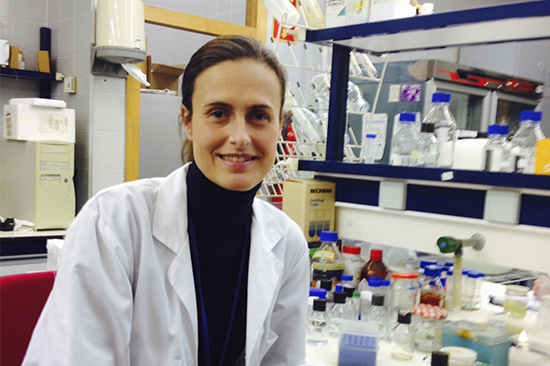
- Breast milk contains microorganisms beneficial to the development of the immune system of newborns.
- The finding, published in the scientific journal Pediatr Allergy Immunol, is the result of a collaboration between researchers from the Institute of Agrochemistry and Food Technology (IATA, CSIC), FISABIO and the University of Linköping (Sweden).
Researchers from the Institute of Agrochemistry and Food Technology (IATA), the centre of the Spanish National Research Council (CSIC), the Fundació per al Foment de la Investigació Sanitària i Biomèdica de la Comunitat Valenciana (FISABIO) and the University of Linköping (Sweden) have discovered that receiving less bacterial diversity through breastfeeding during the first month of life is related to a greater risk of developing allergies during childhood. This is the main conclusion they reached after analysing the composition, richness and bacterial diversity of 40 women's breast milk at one month of birth and after monitoring children during the first 7 years of life to see if they developed allergies as they grew up.
According to Dr. Mira, director of the Oral Microbiome Research Group at FISABIO-Salud Pública, "breast milk is a unique fluid that, in addition to the nutritional elements, naturally contains bacteria and other beneficial microorganisms. It is the way that human evolution has found for the transmission of bacteria from mother to baby".
The researchers have highlighted the importance of breastfeeding in the first months of life for the health of children. "The antibodies and bacteria that mothers transmit through breastfeeding protect girls and boys from the risk of developing certain diseases through the stimulation and maturation of their immune system," says Dr. Maria Carmen Collado, researcher at the Institute of Agrochemistry and Food Technology (IATA, CSIC). "We have seen different patterns of bacterial recognition by the immune system among children with allergies and healthy children but because of the large variability between individuals are not significant. More studies and scientific evidence are needed on the relationship between lactation-microbiota-immunoglobulins and health", remarked Collado.
"The samples that we have analyzed are samples of maternal milk to the month of the childbirth that were taken, throughout 7 years, by the team of our collaborator in Sweden, the immunologist Maria Jenmalm. During this time they have been frozen at 80 degrees below zero, until the current technology, based on microfluidic systems and massive DNA sequencing, has allowed us to analyze the composition in bacteria, as well as know which bacteria are recognized and which are not by antibodies," adds Mira.
In fact, children who received breastmilk with less bacterial diversity developed atopic eczema, gastrointestinal allergy, asthma, rhinoconjunctivitis or urticaria at age 7, the research revealed. "We observed, for example, that allergic minors had less variety of Streptococcus and more abundance of Pseudomonas and Acinetobacter," Mira explains.
The discovery has just been published in the scientific journal Pediatr Allergy Immunol, and has been made possible by mass sequencing techniques and flow cytometry coupled to cell separation.
Contact with bacteria to properly educate the immune system
The finding confirms the role of breastfeeding in early neonatal colonization and adequate immune maturation during childhood and its influence on the health of the child and the future adult. These results support previous data from the authors of the paper where differences at one month of life are observed in the patterns of recognition of bacteria by antibodies in children who developed allergies during childhood.
The next step will be to try to find out why some mothers' breastmilk is less rich in bacteria than other women's, as well as to explore the factors that influence the composition of the microbiota in breastmilk. Thus, the next question would be: "Can we modulate the microbiota in breast milk? One of the modulation pathways would be dietary interventions or the use of probiotics, prebiotics and post-biotics, which should be tested to see if they have an effect on the composition of breast milk and to evaluate their functional role in reducing the risk of allergies and other diseases.
The finding, published in the scientific journal Pediatr Allergy Immunol, is the result of a collaboration between researchers from the Institute of Agrochemistry and Food Technology (IATA, CSIC), FISABIO and the University of Linköping (Sweden).
Majda Dzidic, Alex Mira, Alejandro Artacho, Thomas R. Abrahamsson, Maria C. Jenmalm y María Carmen Collado. Allergy development is associated with consumption of breastmilk with a reduced microbial richness in the first month of life. Pedriatric Allergy and Immunology. DOI: https://doi.org/10.1111/pai.13176.

